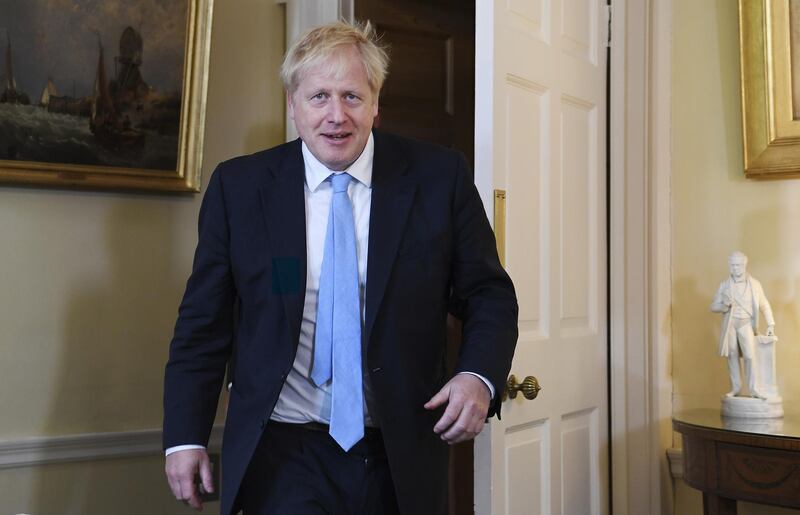In his brief time as British prime minister Boris Johnson has smashed through hundreds of years of precedent throwing around the considerable weight of his office in a bid to deliver Brexit. Now the question looms, will the prime minister’s strategy of taking the fight to his opponents pay off?
British politics, during Mr Johnson’s time at the helm, has been chaotic. He has lost six votes in the country’s parliament – which he tried unsuccessfully to suspend – and tussled over the legislative agenda with parliamentarians when they passed the anti-no-deal Benn Act.
But, as negotiators in Brussels scramble to put together a deal ahead of an imminent EU summit, a slim window of opportunity for Mr Johnson to deliver Brexit and bring the UK parliament with him appears to be developing.
Pieter Cleppe, the head of Open Europe's Brussels office, told The National that Mr Johnson's strategy of pushing a hard-line with Europe while making some concessions meant a "friendly, orderly Brexit" was now far more likely than it had been under the previous prime minister Theresa May.
“Fundamentally I think the strategy was always to show that Boris was serious about no-deal and I think that has worked fundamentally. I think that has finally forced the Irish to engage,” Mr Cleppe explained.
Certainly, the whole atmosphere around the Brexit negotiations seemed to change when Boris Johnson emerged from talks with his the Irish Irish counterpart Leo Varadkar on October 10, saying they saw a pathway to a deal.
Mr Cleppe said the arithmetic had changed as EU negotiators saw the chance of Britain remaining in the bloc diminish and the likelihood of a stronger Conservative government under Mr Johnson emerging from an upcoming election.
“That's what opinion polls show — that Boris Johnson could win a majority without the DUP — and everyone knows in an election he will have to be more radical not less radical than today,” the Brussels-based lawyer explained.
If the EU can agree to a deal at least in principle, Boris faces a showdown once again on Saturday with parliamentarians as he looks to pass the and satisfy the provisions of the Benn Act. As they have changed in Brussels, his fortunes in parliament may also be about to change.
Speaking ahead of Thursday’s summit, Professor Tim Bale, deputy director of The UK in a Changing Europe, said MPs would be giving Mr Johnson the “perfect gift” if they voted in favour of the deal, explaining: “Getting this vote through parliament is doable.”
Mr Bale said securing the votes of the 21 Conservative MPs who had the whip withdrawn for supporting the Benn Act was possible if the prime minister welcomed them back in exchange for their support.
“Most of them want a deal and most of them voted for a deal and left the party simply because they voted to stop no-deal,” he explained.
“They are fairly ‘normal’ Thatcherite Conservative MPs who would like to see a less regulated economy and won't have much problem with the deal as it stands,” Mr Bale added.
Even if Mr Johnson can see a path to a deal, that path remains razor thin, however. He still faces the obstacle of having to ask for a likely and potentially damaging extension. The longer MPs and EU officials have to scrutinise any deal, the more likely that dissenting voices will emerge.
Professor Meg Russell, a senior fellow at The UK in a Changing Europe, said the pitfalls facing the prime minister were many. She argued he had gone too far when he alienated the 21 former Conservative MPs.
“We are looking at an extension come what may and the 21 Conservative rebels in particular are going to be very, very suspicious of any Johnson tricks,” she said.
“Next week we may be talking about another vote of no confidence or another alternative government may be put in place,” Ms Russel explained.
As they look to upturn his opposition’s plans, Mr Johnson’s allies have suggested the prime minister might refuse to resign following a vote of no-confidence, producing another constitutional crisis and possible standoff with the monarch. This, Ms Russel said, could irrevocably damage the prime minister’s reputation.
“His future as the Conservative Party leader and his future as a popular leader in the country if he goes head to head with the Queen looks very shaky,” she explained.





